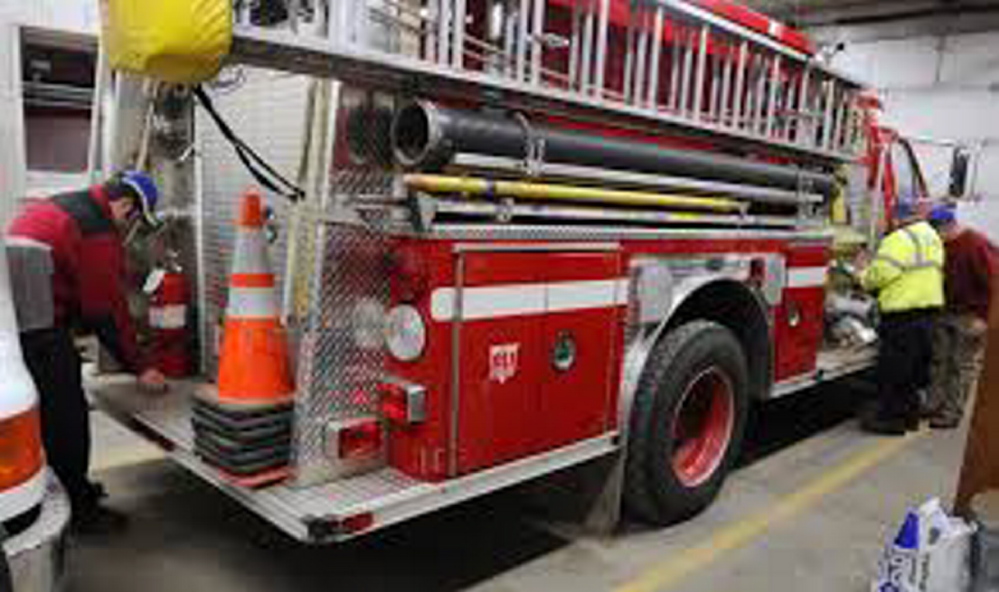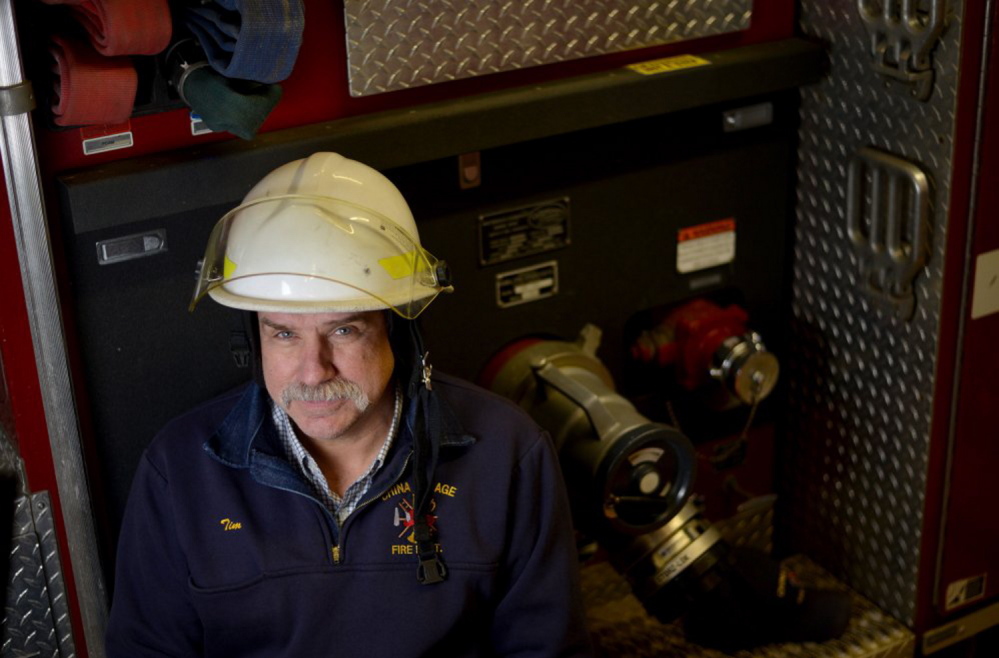AUGUSTA — Lawmakers weighed possible solutions to the lack of volunteer firefighters in rural Maine during a hearing Monday, though they didn’t agree that a bill to provide small financial incentives would be the tool to address the problem.
Maine has had a steady decline in volunteer firefighters over the years and has struggled to find residents to take the place of aging staff. In a public hearing Monday on L.D. 500, a bill that seeks to allow small incentive payments for volunteer firefighters and EMTs, a Republican and two Democratic legislators testified in favor of the bill, while a representative from the Maine Municipal Association called the bill redundant and said its provision to allow tax breaks to volunteer emergency responders wasn’t fair to other town volunteers.
Lawmakers, including the sponsors of the bill, said they were not sure the bill was a solution to the problem, but wanted to begin a public conversation about ways to help the on-call fire departments.
“I’m dedicated to making sure we do something in this Legislature to address this problem,” said House Speaker Mark Eves, D-North Berwick, who sponsored the bill.
The Morning Sentinel recently reported Maine has lost about 4,000 firefighters since the 1990s, reducing the number of firefighters in the state to around 8,000. While the demand for and cost of fire and rescue services has increased, towns across the state have reported they are struggling to recruit and retain on-call responders.
According to the Maine State Federation of Firefighters, 93 percent of fire departments in Maine are staffed either entirely or primarily by volunteers, which Eves said means the shortage of help is a problem facing the majority of the state’s fire departments.
Rep. Thomas Skolfield, R-Weld, said he was surprised to learn that larger communities were having the same problems as Weld, which has a population of about 400. Skolfield said the struggle to retain adequate firefighting services has led to an increase in homeowners’ insurance premiums.
“We’ve found it’s not just the money. It’s the training. It’s the time commitment,” he said.
Rep. Timothy Theriault, R-China, and chief of the China Village department, said that as a fire chief of a department that gives its on-call firefighters no financial compensation, he sees the struggle to recruit and retain volunteers.
Theriault said he sees a decline in the number of people, especially young people, interested in volunteering for the town, which has left his department relying on its neighbors to have enough staff trained to enter a burning building. He said he only has three people on his department under the age of 50.
Kate Dufour, representing the Maine Municipal Association, said the association is opposed to the bill because towns already are legally able to provide financial incentives for firefighters and a recent survey found that 90 percent of Maine towns with a population under 10,000 do.
Eves said during his testimony that the bill would allow property tax breaks for the volunteer firefighters, but Dufour later said that the MMA opposes giving tax incentives to some volunteers, such as firefighters and EMTs, and not giving incentives to any others, such as planning board members.
Along with discussing the specific bill, attendees discussed a range of potential solutions to help with recruitment, retention and other burdens facing the fire departments.
Rep. Michel Lajoie, D-Lewiston, said there might be ways to reduce the regulatory burden on small departments. As a former Lewiston fire chief who was later involved with the Bureau of Labor Standards creating standards for firefighters, he saw the way training requirements were adapted over time to keep firefighters equipped with a standard set of necessary skills. Lajoie said, however, that it may be time to consider easing certain regulations to accommodate smaller departments with aging members, who might only be there to help drive a truck or perform some small task.
“It’s possibly time we review these regulations,” he said.
Dufour said MMA would be interested in other solutions, such as helping departments join up for training or more robust mutual aid.
A workshop for the bill has not yet been scheduled.
Kaitlin Schroeder — 861-9252
Copy the Story LinkSend questions/comments to the editors.




Success. Please wait for the page to reload. If the page does not reload within 5 seconds, please refresh the page.
Enter your email and password to access comments.
Hi, to comment on stories you must . This profile is in addition to your subscription and website login.
Already have a commenting profile? .
Invalid username/password.
Please check your email to confirm and complete your registration.
Only subscribers are eligible to post comments. Please subscribe or login first for digital access. Here’s why.
Use the form below to reset your password. When you've submitted your account email, we will send an email with a reset code.